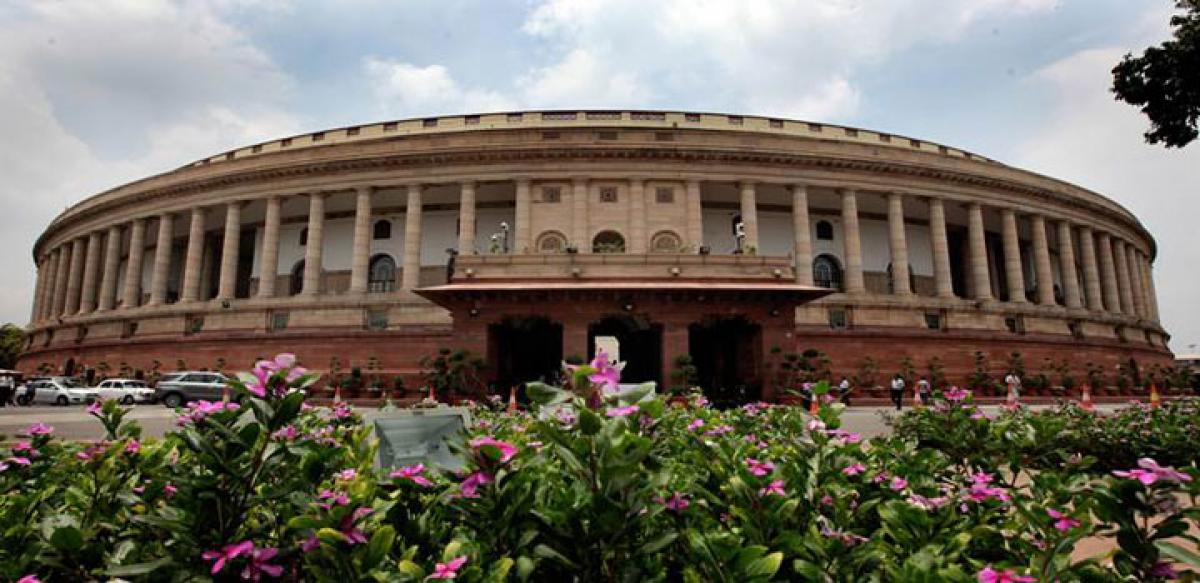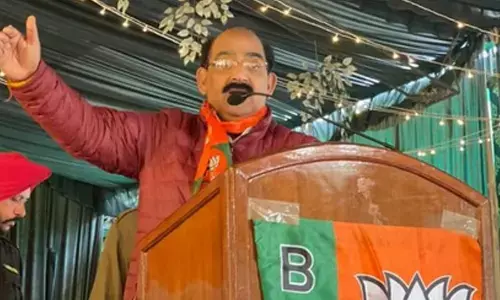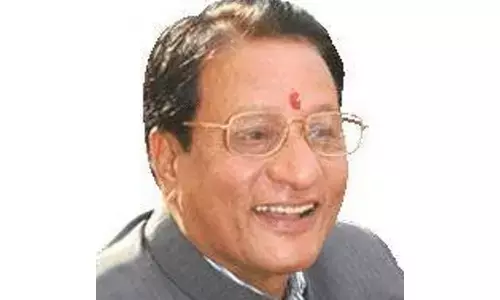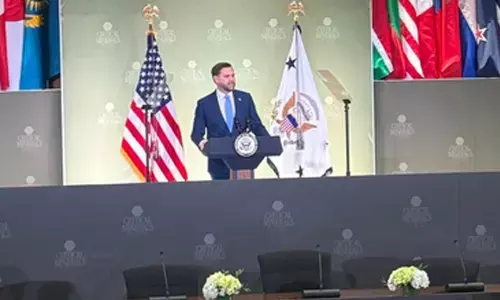Let Parliament function

Parliament is yet again getting ready for a stormy session from today. The intolerance debate can turn Parliament intolerant. The unending differences over the Goods and Services Tax (GST), land acquisition, judicial reforms are set to rock the House.
Parliament is yet again getting ready for a stormy session from today. The intolerance debate can turn Parliament intolerant. The unending differences over the Goods and Services Tax (GST), land acquisition, judicial reforms are set to rock the House.
.jpg)
The Bihar mandate at its backdrop is expected to see the opposition more united and energetic in facing the ruling party. The government and the party that heads it are in no mood to relent. The spiraling prices, especially of pulses, the foreign policy fiasco in regard to Nepal, besides local issues like special status to Andhra Pradesh, perceived discrimination against Telangana etc., have the potential to make the house of people turbulent.
Parliament is meant for healthy debates and democratic resolution of differences. But, political belligerence cannot be allowed to hold the embodiment of people’s will to ransom. The constitutional mandate of legislative scrutiny of the executive cannot be sacrificed at the altar of partisan agenda. The call of the nation, therefore, is ‘let the Parliament function.’
The last monsoon session of Parliament was at its abyss. The productivity of RS and LS was 9% and 48% respectively, according to PRS Legislative Research, 2015. The Vyapam and the Modi gate scandals led to parliamentary disruption with the government and the opposition finding no room to reconcile. Now, the nationwide display of displeasure over growing intolerance and orchestrated defence of the party in power would certainly find a similar echo in Parliament.
The political landscape in Parliament has not changed. The government has no majority in RS making the opposition more determined to take its pound of flesh. The Bihar verdict provides the additional tonic. The ruling NDA cannot preach morals as it adopted similar tactics while in opposition. In a televised democracy, the confrontational politics have gained substantial supremacy over politics of consensus or even accommodation.
The ruling party should realise that it can escape Parliament anger but not the people’s ire which is evident from a slew of recent electoral results. According to PRS data, only 2% of questions were answered orally in RS and 13% in LS during the last monsoon session.
The opposition should, therefore, understand that foregoing legislative oversight of executive with non-functional parliament would ultimately play into the hands of the government. It’s, therefore, no win situation. Finally, it would result in denigration of Parliamentary institutions in the eyes of the people, which will only result in further democratic deficit.
As there are no physical, legal or quantified political costs associated with Parliamentary obstruction, this tendency is on rise. The media prominently features obstruction rather than an incisive debate .This acts as an incentive to obstruct parliamentary proceedings.
Still some solutions can be attempted. The partisan attitude of Speakers pushes opposition to take to the extreme. Thus, Speakers should be barred from taking active political position in the later period. The government has monopoly over determining the parliamentary business making opposition helpless.
As practiced in United Kingdom, opposition should be allowed to decide atleast few days of business agenda in Parliament. The adjournment motions should be taken up after question hour. The system of parliamentary committees has proved to be effective. Ultimately the political culture should change as Parliament does not function in political vacuum.














